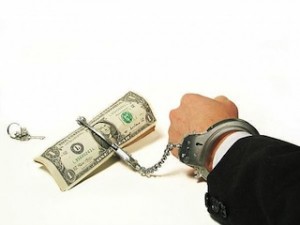 These days, debts are bought and sold like stocks. By the time a debt collector files suit against you, they may be the third or fourth agency to hold your debt. Generally, this is a good thing because Debt collectors assume that they will be able to win by default in nearly all of their cases. As a result, these collectors rarely keep proper documentation (or don’t even get it in the first place).
These days, debts are bought and sold like stocks. By the time a debt collector files suit against you, they may be the third or fourth agency to hold your debt. Generally, this is a good thing because Debt collectors assume that they will be able to win by default in nearly all of their cases. As a result, these collectors rarely keep proper documentation (or don’t even get it in the first place).
Adopted by nearly every state, the Uniform Commercial Code sets forth requirements that must be met by a secured creditor before they can assess a deficiency against a debtor. There are varieties of other provisions that can be used to protect consumers: the Fair Debt Collection Practices Act, the Federal Truth in Lending Act, etc. One of the most powerful protections a consumer has is the Florida Rules of Civil Procedure. When one knows how to get evidence and how to present pleadings properly, the strength of a case is greatly amplified.
When a collector files a complaint with the court, they must have the debtor served at their last known address. There are a variety of defenses that can be used: Perhaps the collector hasn’t properly shown that they are owed the debt, perhaps the debt amount has been improperly calculated, perhaps the debtor isn’t even the right person -the list goes on and on. What is important to keep in mind is that a lack of action on the part of the defense means that they consent to the facts alleged. This is called a default judgment. Default judgments are difficult, though not always impossible to “re-open” and work out properly. It’s far easier to defend such a case if counsel is sought prior to a judgment being obtained, preferably before the initial twenty days after service of process has occurred. By getting into a case early, a lawyer will almost invariably have a better chance at defeating the complaint and may be able to get attorneys fees or file a counter-claim for damages (suing the person who is suing you).
 #bankruptcy, #chapter 13, #b22c
#bankruptcy, #chapter 13, #b22c  Jacksonville Bankruptcy Lawyer Blog
Jacksonville Bankruptcy Lawyer Blog







 Upon filing for bankruptcy protection, an automatic stay is put in place. This means that creditors can not try and collect from you. So a creditor cannot call you to request payment, send bills to you, garnish your wages anymore, or repossess your car without court permission. If there is a foreclosure suit against you, that suit must also stop immediately. If your home is sold and you filed prior to the sale, that sale can be vacated. Obviously, this is a powerful tool bankruptcy. Many people file to stop creditors from taking actions against them or their property.
Upon filing for bankruptcy protection, an automatic stay is put in place. This means that creditors can not try and collect from you. So a creditor cannot call you to request payment, send bills to you, garnish your wages anymore, or repossess your car without court permission. If there is a foreclosure suit against you, that suit must also stop immediately. If your home is sold and you filed prior to the sale, that sale can be vacated. Obviously, this is a powerful tool bankruptcy. Many people file to stop creditors from taking actions against them or their property.